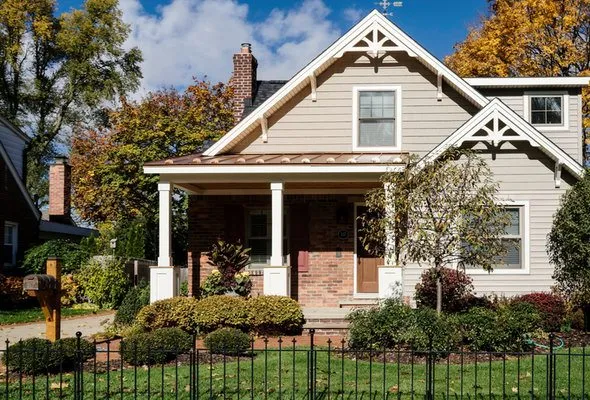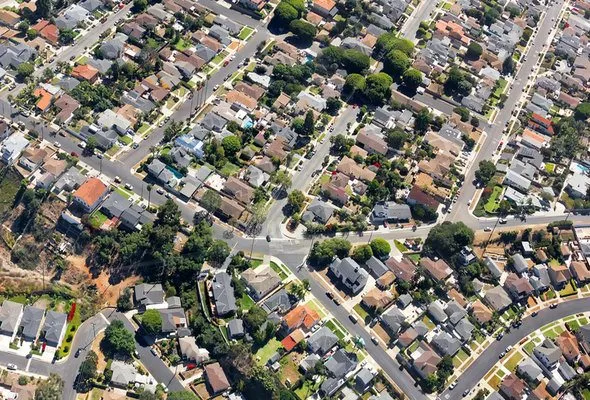Looking for an affordable home? If so, you may be wondering whether buying a pre-foreclosure home could help you land a bargain on your home purchase. Browsing real estate listings will show you that there are plenty of pre-foreclosure listings. But is buying a pre-foreclosure home doable? Let’s take a closer look. A financial advisor could also help you create a financial plan for your home-buying needs and goals.
What Is a Pre-Foreclosure Home?
A pre-foreclosure home is a property where the owner has defaulted on mortgage payments, prompting the lender to begin foreclosure proceedings. However, the home has not yet been repossessed or sold at auction, leaving the owner with a window to either catch up on payments, sell the property or negotiate a settlement with the lender. This phase typically begins when the homeowner receives a notice of default or lis pendens, signaling legal action.
Unlike foreclosed homes, which are sold by banks or at sheriff’s sales, pre-foreclosure properties are still under the owner’s control. This creates opportunities for direct negotiations, often resulting in purchases below market value.
However, buyers must be aware that pre-foreclosure homes may come with outstanding debts, deferred maintenance, or resistance from sellers hoping to avoid losing their home. The length of the pre-foreclosure process varies by state and lender, sometimes lasting months or years.
How to Find a Pre-Foreclosure Home

If a pre-foreclosure home is for sale, you’ll see it listed as a pre-foreclosure property or short sale on real estate sites like Zillow. You can also follow up on public-record notices of default and ask homeowners if they’re interested in selling their homes. When taking this approach, remember to be respectful in your dealings with pre-foreclosure homeowners. You don’t want to cross the line by harassing the owners of the property you’re looking to buy. Depending on the laws in your state, you may not be allowed to approach the owners of distressed properties.
Types of Home Sales
There are multiple types of pre-foreclosure homes or properties that would be viewed similarly in terms of price and opportunity. The categories they fall into are:
- Pre-foreclosure: This is a property where the lender has notified the borrower, or homeowner, that they are in default but the property hasn’t yet been offered at an auction.
- Short sales: Typically these homes are underwater, meaning that the property is worth less than what is owed to the bank or financial institution. Short sales start with the borrower either in default or with a financial hardship that is likely to result in a default.
- Bank-owned property: If a property has been auctioned and wasn’t able to be sold then the ownership reverts to the lender of the mortgage, which is typically a bank. Banks can be slow to move properties but will typically take less than the property may be worth.
- Government-owned property: This is similar to a bank-owned property but if the property was purchased with a loan that was guaranteed by a government entity, like the U.S. Department of Housing and Urban Development.
- Sheriff’s auction: These properties are put at auction at the city’s courthouse steps once a borrower has defaulted and been notified without any effort of resolving the issue. This typically happens before either of the bank or government-owned situations above.
How to Buy a Pre-Foreclosure Home
If you decide you want to purchase a pre-foreclosure property, you won’t necessarily arrange a mortgage and make a down payment like you would for a normal home purchase. Instead, you’ll cover what the current homeowner owns. That means you’ll be responsible for the loan balance, any liens on the property and any unpaid mortgage and homeowners insurance. You’ll pay those funds to the seller and take over the property from the seller. This process will go more smoothly if you can offer to pay in cash.
However, if you choose to buy a similar type of property from the list above that isn’t technically a pre-foreclosure then the process will be a bit different. You won’t be responsible for any of the unpaid mortgage but instead will make an offer, either cash or pre-approved with a lender, through an auction or directly to a bank, and then close on that offer if it is accepted.
Making an Offer on a Pre-Foreclosure Home
Ideally, you would want your total costs to add up to a sum that’s well below the value of the home. Keep in mind that you may also have to cover the cost of repairs to the home. When you (respectfully) approach the owner of a pre-foreclosure home you can propose an amount that you’ll pay.
When you’ve made your offer, the seller will most likely try to negotiate a higher price. Remember to include contingencies in your offer that let you get out of the purchase if the title search reveals a problem with the title on your property or if a home inspection reveals significant problems with the property. Depending on the laws in your state, the seller of a distressed property may have the right to back out of a sale even after you reach a deal.
Risks of Buying a Pre-Foreclosure
There are some risks associated with buying a pre-foreclosure property that you’ll want to be aware of before moving forward. These risks could involve you spending more money than you think for the property and not every single one you come across will be as good of a deal as it sounds. Here are some of the biggest risks:
- Slow process: It can take a while for the bank to approve you or your offer and they may not be in a hurry to move the property.
- Competition: Since these homes can often be purchased under value, there can be stiff competition in trying to buy one.
- Structure issues: A lot of these properties are known to be trashed by the previous tenants on their way out the door, or they could receive damage from sitting around for a long period of time. These are extra costs you’ll have to fix.
- Unexpected costs: There could be liens or back taxes on the property that you’ll need to clear up. These could add quite a bit of unexpected costs to your overall price for the property.
Pre-Foreclosure vs. Short Sale vs. Foreclosure
While pre-foreclosures, short sales and foreclosures all involve homeowners struggling with mortgage payments, they represent different stages of financial distress and offer distinct opportunities for buyers.
Pre-foreclosure occurs when a homeowner has defaulted on their mortgage but still retains ownership. The lender has initiated legal proceedings, but the property has not yet been seized. During this stage, the owner may attempt to sell the home to avoid foreclosure, sometimes at a discount, but they still control the sale process. Buyers in a pre-foreclosure deal negotiate directly with the homeowner, potentially securing a favorable price without competing at an auction.
A short sale happens when a homeowner, with lender approval, sells the home for less than the remaining mortgage balance. Unlike a pre-foreclosure sale, a short sale requires the bank’s involvement, often leading to a prolonged approval process. Lenders may reject offers or counter with higher demands, making these transactions unpredictable and time-consuming.
Foreclosure is the final stage, where the lender has repossessed the home and either sells it at auction or takes ownership as a real estate-owned (REO) property. Foreclosed homes are often sold “as-is,” may require extensive repairs and can involve hidden costs such as unpaid taxes or liens.
Bottom Line

Buying a pre-foreclosure home is an opportunity to pay a lower-than-market price. You’ll also face less competition than you would if you bought a foreclosed home at auction. Before you look for a pre-foreclosure home, it’s important to research the distressed property laws in your state. There’s a reason that most buyers of pre-foreclosure homes are investors with experience, not first-time homebuyers. The process is not easy to navigate. It helps to have a lot of cash on hand and plenty of negotiating savvy.
Tips for Homebuyers
- A financial advisor could help you create a financial plan to buy a home. SmartAsset’s free tool matches you with up to three financial advisors who serve your area, and you can interview your advisor matches at no cost to decide which one is right for you. If you’re ready to find an advisor who can help you achieve your financial goals, get started now.
- SmartAsset’s free mortgage calculator will help you determine your monthly payments using real mortgages, with local data on insurance and real estate taxes.
Photo credit: ©iStock.com/JohnnyH5, ©iStock.com/jhorrocks, ©iStock.com/RiverNorthPhotography
